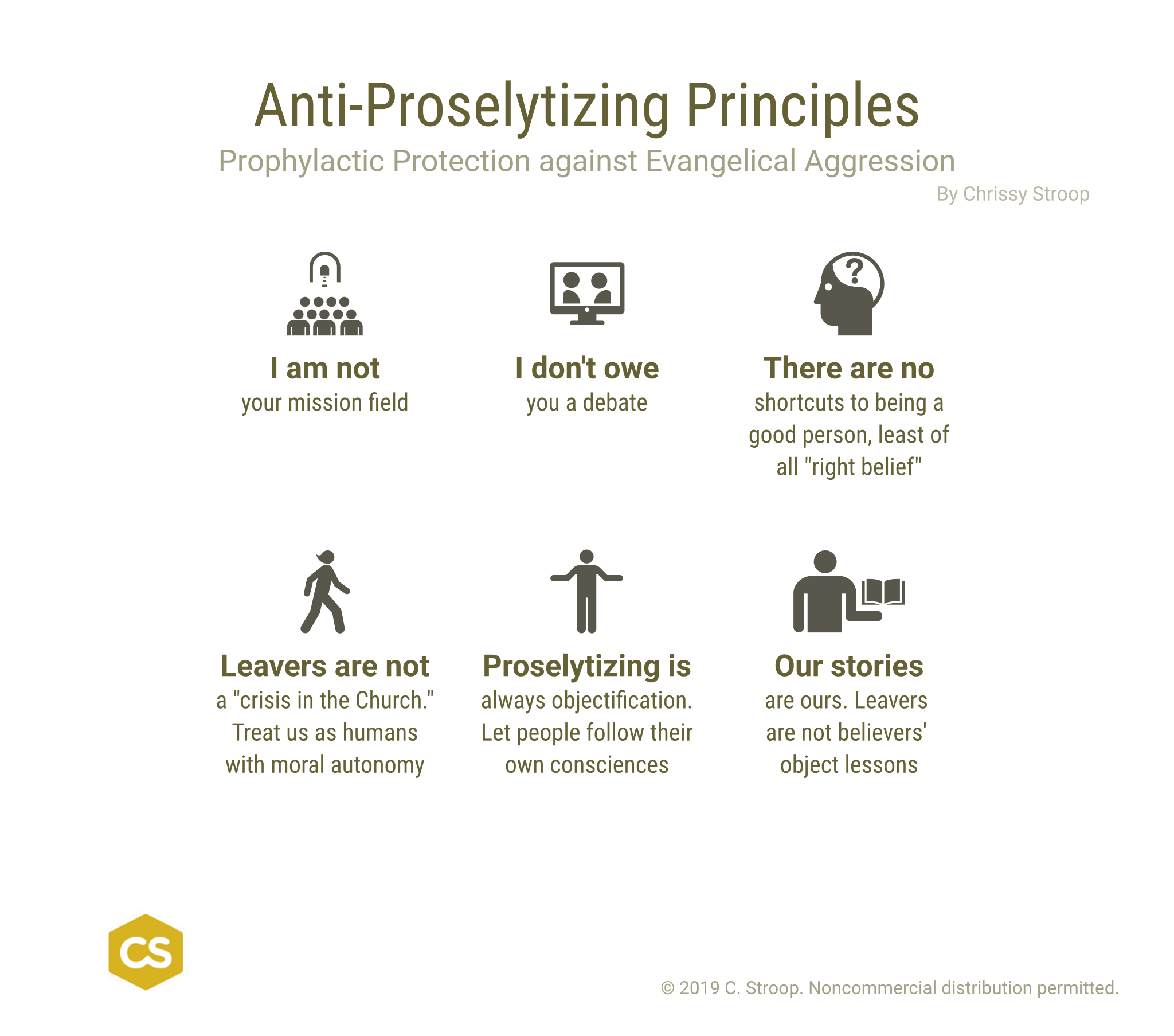A journey of deconstruction

Part 1 - Definitions
The best place to start any journey is at the beginning. My morals, ethics, and worldview are, for better or worse, shaped by evangelical Christianity and it frames a great deal of my writing. This being the first post, I think it wise to start with a series about this particular facet of my life. This part lays out some definitions, and some background information for readers that may not be familiar with Evangelicalism.
I also encourage you to read a post on my old blog called What I Believe. It lays out the perspective of where I came from and if you examine it I think you will find the seeds of deconstruction. I've grown and I've changed, something antithetical to the Evangelical worldview. I'm also a better writer, so if you do read it, forgive the word choice. If you don't read it, don't worry, I'll republish some of the choice quotes throughout this series.
What is Deconstruction?
I struggled with starting with a definition of Evangelicalism or starting with the term "Deconstruction" itself. Throughout this series, I'll describe it as "unlearning what I have learned" which could apply to anything and thus it can be defined outside the context of faith.
It isn't a religion unto itself. Many people deconstruct one faith and find a different one. In my opinion, that's wonderful! I don't seek to convert anyone to anything though I argue whatever shapes someone's world view that it assists them in being a better human.
I'm not here to write criticisms of Evangelicalism in general, not that it doesn't deserve most of it, I'm writing about how my experiences with it affected me. There are plenty of other voices explaining the problems far deeper than I will here.
I'm also not here to debate. If you're an evangelical reader I recommend you read Chrissy Stroop's writing on this topic. Her graphic in the article lays it out nicely:

What is Evangelicalism?
The word is hard to define as there are a plethora of Evangelical churches and groups with differing beliefs. They are, however, Christians. I often hear people suggest that bad actors in churches are not real Christians, employing a kind of "no true Scotsman" argument. The problem with this idea is that it assumes Christianity is a default force for good, that it is inherently without flaw, and by extension a person claiming it is also "good" by default. The institution becomes immune to the actions of its members.
This is, of course, absurd. Imagine a corporation that donates great wealth to charity but also dumps toxic waste in rivers. One river is an accident, but ten rivers, is a pattern, especially if the company shrugs its shoulders. At some point, we can recognize a problem in the institution. The pattern is clear enough when it comes to Evangelicalism.
One might argue that Evangelicalism is its own separate religion but that is problematic as well because they themselves claim Christianity, often claiming they are the only true Christians. I take the philosophy that when someone tells you who they are, you believe them. Again I think such an argument is made from the idea that Christianity is inherently "good". Easier to cast off the bad actors than to examine the institution.
So what is an Evangelical? I think there are several key elements common to most groups:
- Being "born-again", meaning a specific conversion experience where a person confesses that Jesus is God and that the Holy Spirit literally enters a person's body upon this event. Many groups (like the Southern Baptists I'm most familiar with) place an emphasis on baptism at this point.
- A belief that being "born-again" absolves them of wrongdoing in the eyes of God.
- Following "The Great Commission" found in Matthew 28:16-20. A resurrected Jesus commands his followers to "Go out into all the world and spread the good news". Evangelical theology uses this as the cornerstone of why they must convert outsiders.
- That part of the Great Commission is to craft the government according to their Biblical interpretations.
- A belief that Hell is a literal place of torture where those not "born-again" are sent upon death.
- Their church or denomination is the one true path to God and all other churches or denominations have been led astray to varying degrees.
- Belief that we are approaching the End Times and that Jesus will return soon as described in the book of Revelation.
- A belief that everything we need in life is provided by God and thus they tend to be against the government providing social welfare.
- A strong belief in "purity culture" the idea that marriage is between a man and a woman and that one should not engage in sexual activity before or outside of marriage.
To sum up, Evangelicals are authoritarian. They believe in a strict social order. Christ as the head of the Church, man as the head of the woman, and unfortunately whites as the head of a hierarchy of racial groups. Many of the core beliefs that Evangelicals hold come in response to the abolishment of slavery and the subsequent struggle for Civil Rights in the last 160 years rather than a Rabbi who lived two millennia ago.
If you're interested in learning how Evangelicalism fits into the wide variety of Christian groups, Matt Baker of Useful Charts has a fantastic series on the family tree of Christian denominations.
Where from here?
In the next part, I'll delve into where I started to question the worldview posed to me.